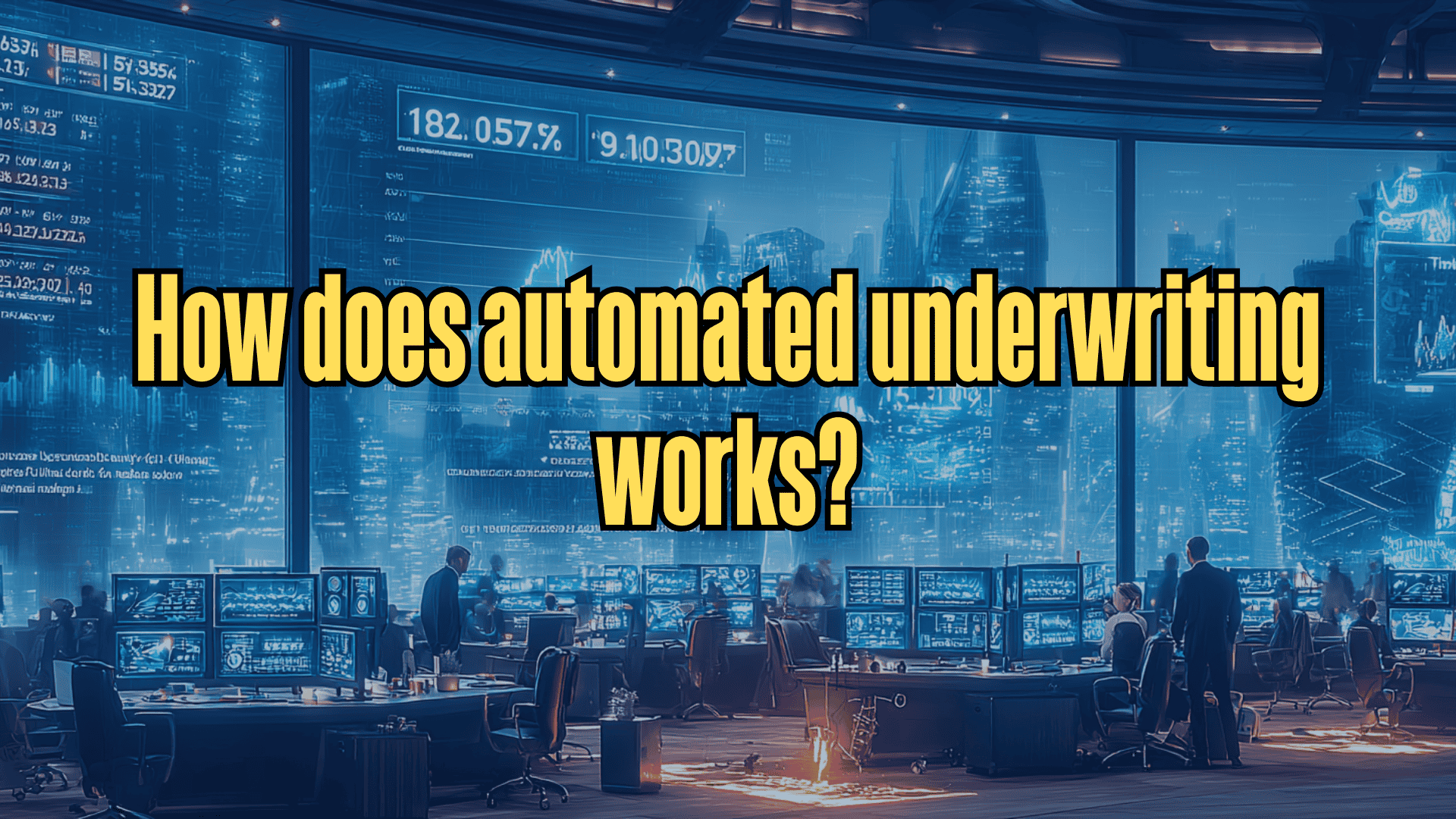There’s a reason why assessing business credibility is critical for lenders' risk appetite. Whatever industry you’re in, it comes with its challenges—much more when you are in the lending business.
As a business that primarily revolves around handling money, it is important that you always know who you are dealing with. In today’s fast-paced and interconnected business world, it has now become easier to get in touch with business owners and individuals who want to turn their vision into reality. Technology has facilitated many successful transactions—many of whose products and services we have been using and relying on every day.
However, along with success comes risk. The growing number of data breaches and fraud cases has ballooned over the years, with credit loss forecast to reach $850 billion in 2025. Moreover, the growing cases of cyber theft and data breaches among businesses are projected to cost $10.5 trillion this year.
As a lending company, understanding how business financing works is very important, as you could lose assets and damage your finances. By knowing how to manage it effectively and implementing multistate business verification, you get to maintain trust and stability in financial transactions.
The question is: How to start? What are the things that you have to know about multi-state business verification for lenders?
The Importance of Multi-State Business Verification
The general rule of thumb is: do not venture onto something uncertain. There’s more to lending than just making money transfers and signing papers. Getting to know who you are dealing with or performing Know Your Business (KYB) verification is very important because:
- Compliance Purpose: For sure, you know how heavily regulated the lending industry is. It is important to protect both the lender and the creditor. Hence the need to ensure that all transactions adhere to legal and regulatory standards, which include federal regulations, state-specific and industry-specific laws, and international guidelines for cross-border transactions.
- Security: The fact that tech experts from Cybernews have been publishing comprehensive cybersecurity articles, such as the Norton 360 Antivirus review, means only one thing: data breaches, malware, phishing, and other online threats have become so prevalent and potent that they have to take the initiative to remind businesses to learn more and take precautionary measures to the next level.
Knowing that lending businesses handle such sensitive financial data, they have become prime targets for cybercriminals. Thus, it is crucial to implement top-notch security measures to protect both your business and your clients.
- Business Reputation: As mentioned, entrepreneurial ventures come with risks. Are you worth risking for? Remember, it's not just about finances—your company's reputation is its most valuable asset. When you have a solid reputation, operations are more likely to run smoothly and securely.
That's why conducting KYB verification is so important. It demonstrates your commitment to diligence and responsibility, showing how dedicated your lending business is to maintaining high standards. By building and keeping the trust of your business partners, you establish yourself as a reliable and credible lender—underscoring the integrity of your operations and further establishing the position of the business in the industry.
Most Common Problems in Multi-State Business Verification for Lenders
Much has changed in the lending industry with the advent of technology. Many processes are now streamlined, and some transactions can now be done online. However, when you’re operating across multiple states, a lot of things can become complex and challenging.
Here are some of the most common challenges experienced by lenders in multi-state verification:
- State Regulations and Policies
The integration of AI and machine learning has caused many states and regions to review the current cybersecurity policies and business regulations they are implementing. Given the nature of the industry, it is your responsibility to stay updated with all these changes to protect your business and customers. To avoid legal risks, always be keen on regulatory updates and be adaptive to changes.
- Keeping Track of Deadlines.
No lender is ever happy with late payments. The same applies to deadlines. Apart from complying with state requirements, you also need to be diligent in tracking deadlines. Missing a single deadline can result in late fees, loss of good standing, or worse, administrative penalties. To avoid unnecessary complications, always take note of important dates in the compliance calendar.
- Scalability and Cost Efficiency.
Multi-state verification is a multifaceted endeavor. One that demands adaptation to compliance rules, collaboration with individuals in different states, and tech innovation to streamline operations. Add to that fees that you have to make—from filing to registrations, and even the potential penalties. And with the rising number of cases of fraud and data breaches, you also have to invest in a stronger cybersecurity system to safeguard your business and customer data.
How to Verify if the Business is Legitimate
You're probably familiar with many cases of money laundering. Above all things, you wouldn’t want to engage in such nefarious activities and make your business complicit. Hence the need to really get to know the businesses you are financing and working with.
To ensure the safety of your business, here are some methods that you can employ to verify if a business is legitimate:
- Check Business Registration. Apart from reviewing the physical and online presence of the business, you also have to cross-check that the information provided is true from official sources, such as the Secretary of State, IRS records, business credit reports, and other valid resources.
- Review Ownership Information. Is the owner the one you are in communication with? Have you validated all information about the owner and the legitimacy of the documents provided? Always request for government-issued ID and other proof of ownership, such as tax ID for UBOs, names and details of stakeholders, and company registration number, to name a few.
- Assess Financial Health and Business Reputation. Always be meticulous in spotting potential red flags during your background checks. Look into the financial statements, credit reports, and other financial indicators to double-check the stability and performance of the business—essentially, its ability to pay. Research online reviews and customer feedback about the services and products offered and understand the industry risks associated with the business.
- Consult Experts. By now, you probably get a clearer picture of what multi-state business verification for lenders looks like: complicated and demanding. But you can always tap on available resources and experts in the field to make your business procedures more efficient and effective. For instance, you can tap on tech resources, such as Cobalt Intelligence, to make it easier for your business to verify business, assess the accuracy of data, find business owner information, and automate KYB compliance.
Real-World Verification Tactics for Alternative Lenders
Bank Statement Analysis Techniques
Bank statement analysis is a critical tool for identifying financial red flags, such as irregular deposit patterns that may indicate inconsistent income or fraud, rounded transaction amounts often linked to manipulation, and mismatched beginning and ending balances that suggest discrepancies. Detecting PDF manipulation is also essential, as tampered documents can misrepresent financial health. Alternative lenders must verify average daily balances against reported revenues to ensure consistency and reliability in cash flow. This process helps uncover anomalies like sudden large deposits or frequent overdrafts, enabling lenders to make informed decisions while mitigating risks associated with fraudulent or unstable financial behavior.
Business Activity Confirmation
Beyond legal verification, showing how to confirm a business is actually operational through methods like:
- Mystery shopping or site visits
- Analysis of payment processor statements
- Social media activity timeline assessment
- Customer review pattern analysis
- Supplier reference checks
Confirming a business is operational involves several methods beyond legal verification. Mystery shopping and site visits provide firsthand insights into customer experiences. Analyzing payment processor statements reveals transactional activity. Social media activity timelines can indicate ongoing engagement. Customer review pattern analysis helps identify operational trends. Additionally, supplier reference checks validate business interactions with partners. These methods collectively ensure that a business is not only legally established but also actively operating and engaging with its environment.
MCA Stacking Detection
Describing the telltale signs of a business that's stacked multiple merchant cash advances and how to detect this through:
- Bank statement withdrawal pattern analysis
- UCC filing date clustering
- Automated daily withdrawal tracking
- Calculating true debt service coverage ratio with all existing advances
Merchant Cash Advance (MCA) stacking, the practice of taking multiple MCAs simultaneously, creates significant financial risks for businesses. Detecting MCA stacking involves analyzing bank statements for patterns of frequent withdrawals, often indicating multiple daily payments to different lenders. Reviewing Uniform Commercial Code (UCC) filings can reveal clustered filing dates, signaling overlapping advances. Automated tools tracking daily withdrawals further help identify irregular repayment schedules. Finally, calculating the true debt service coverage ratio across all advances provides a clear picture of a business’s ability to meet its obligations. These methods collectively help lenders and businesses mitigate the risks associated with MCA stacking.
Cross-border verification
Cross-border verification poses unique challenges for businesses operating across state lines or using multi-state incorporation strategies to obscure ownership or financial issues. Variations in state regulations, such as differing tax apportionment formulas or business registration requirements, complicate efforts to ensure compliance and transparency. Fraud risks increase, as businesses may exploit these discrepancies to hide beneficial ownership or financial instability. Advanced tools like Secretary of State APIs help streamline verification by providing real-time access to official registration data across jurisdictions, enabling fraud detection and compliance with Know Your Business (KYB) requirements. However, adapting to evolving regulations and integrating diverse technologies remains essential for effective cross-border verification.
Time-Efficient Verification Workflows
Alternative lenders often face the challenge of verifying businesses quickly while maintaining thoroughness. To achieve this within 24-48 hours, leveraging automated tools like Secretary of State APIs is essential. These APIs provide real-time access to primary-source data, enabling instant checks on business legitimacy, status, and officer details across all 50 states and D.C.. Automation can handle bulk verifications, discrepancies, and fraud detection efficiently, reducing manual workload by up to 90%. However, human judgment remains critical for high-risk cases, such as analyzing behavioral patterns or escalating non-standard applications. Combining automation with human oversight ensures both speed and accuracy in decision-making.
Multi-State Business Verification for Lenders: In a Nutshell
Indeed, the process of multi-state business verification is not for the faint of heart. With so many things to consider—from state regulations and policies to cybersecurity threats—business owners like you have to be critical in every transaction made.
But you don’t have to carry all the burden by yourself. With technological advancements that you can integrate into your system and a reliable solutions company to work with, you can be certain that your business can run effectively and securely in this evolving industry.












.png)